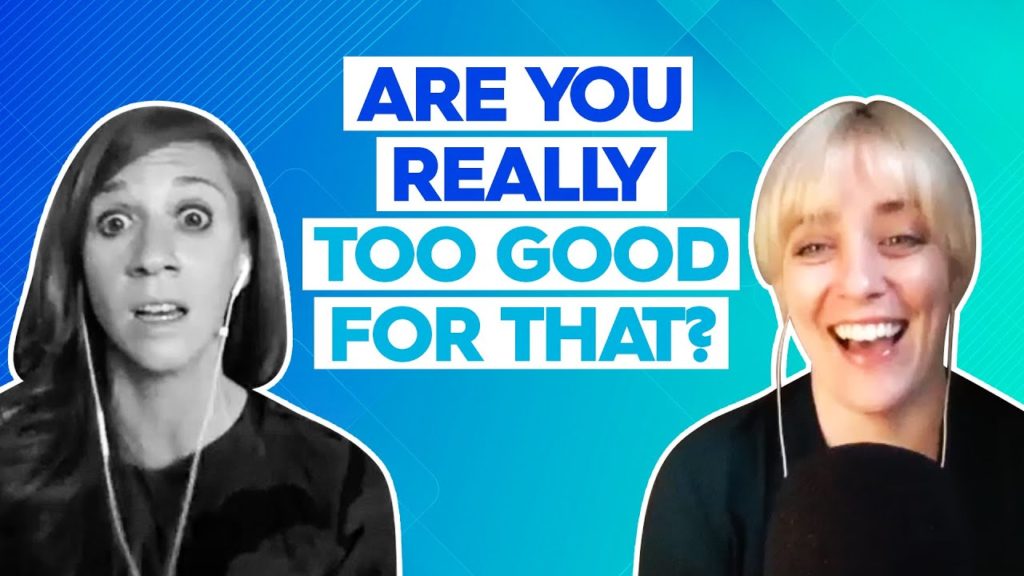A few days ago, Bloomberg.com ran a headline that said, “Massachusetts Virus Outbreak Looks Like Italy’s Just Two Weeks Ago.”
That was my breaking point.
For most of my life, I believed watching the news was my civic duty. A democracy relies on having a well-informed public, so, watching the news and “being informed” was part of participating in democracy. You don’t want to be ignorant, how does that serve the world!!!
But after a short stint at CNN, a lotta guest posts on major media outlets, a bunch of press, and a ton of original content, I’ve changed my view on whether the news serves that civic duty. And that has to do with the specific role headlines play in generating revenue for media companies and its subsequent effect on your mental health (and the world).
In graduate school, I studied an effect called “agenda-setting,” which is the media’s ability to influence what topics you think are important. It determines what topics get put on the “public agenda.” For example, what topics you want to hear about during presidential debates or what you talk about when you go out with friends. You can test the theory by asking yourself when the last time you cared about the microbiology of infectious disease was and if the answer is, “Not before the last two weeks,” then you can understand the effect of agenda-setting.
Agenda-setting happens as a result of two things. One is attention. By giving certain topics more attention than others, it creates the illusion that these topics are more important. So, the more “air time,” a topic gets, the more you assume it matters. Air-time is unrelated to the importance of a topic, but our brains don’t know that. We make the cognitive leap that “more time = more important.”
The second way the media sets the public agenda is by framing the issues they share with their audience, rather than “reflecting stories to the audience.” There’s a lot of debate and ethical gray area here as to what “objective” coverage means and a TON of theory of knowledge we can dip into about reporting and bias and truth. But the part that matters for this conversation is understanding that the way information is delivered influences your perception of it.
Which is why the Bloomberg headline got me so upset. There’s only one possible thing to be gained by running a headline like that. And it’s not the objective democratic spread of information or to hold power accountable or any of the other noble causes we credit to the news being part of our “civic duty.”
In this article, I’m going to explain how and why the media is causing the panic and outrage we’re seeing in America (but not in other countries) right now. I’ll explain why the news doesn’t make you “more informed” to the degree you think it does and argue that if you’re feeling panicked about the global pandemic in our midst, you need to turn off the news.
We’ll talk about the effect fear has on the mind and why protecting your attention is arguably the best thing you can do for your health right now. But first, we need to talk about headlines.
Direct Response Copy Headlines Are Distinctly Different From News Headlines
In the advertising world, we think of headlines as beacons for your buyers. Their job is to attract the right people and repel the wrong ones by using a persuasive and compelling appeal. And that appeal should be invisible. Meaning you shouldn’t read a headline and go, “Wow! What a great headline!” You should read a headline and go, “Oh man, I really want to buy those shoes.”
A great headline works like a matchmaker. It matches ‘the solution you sell’ with ‘the problem your market thinks they have.’ That’s how headlines are supposed to work. The difference between direct response headlines and media headlines is their approach to attention. Direct response headlines are are intended to be helpful.
They exist to filter the disinterested parties and attract the attention and interest of those who might buy. Meaning, they don’t need to attract a ton of people, they need to attract the right people. People who read your ad, website copy, or sales page and click, “buy.” AKA: Buyers.
The media, however, doesn’t have buyers the way we do. CNN (or MSNBC or Buzzfeed or NYTimes or Bloomberg.com) isn’t trying to sell you an online course or a pair of shoes. It isn’t trying to sell you anything because you are the product. Media companies sell your attention to advertisers who pay for access to it.
And TBH that wouldn’t be such a terrible thing if it wasn’t for how they do it which I’ll explain in a moment.
First, you have to understand that it doesn’t matter to CNN’s bottom line if you read the article you’ve clicked on on their website. Which is strange if their goal is to keep you informed. It only matters that you clicked on the link and the page loaded. There’s no incentive to keep you on the page, which means there’s no incentive to produce quality content. They assume, correctly, that when you arrive on a page, you skim it, get bored quickly, and then click out to another story.
When I was writing my column at Inc, I was advised to keyword stuff and backlink in the first paragraph and assume people weren’t reading the article much after that. For the nerds that means news media outlets don’t care about time on page, they care about pageviews. This distinction is important.
The news doesn’t care about time on page, they care about pageviews.
Because with every pageview, they can show you an ad. And the more ads they can show you, the more money they make. That’s why when you open an article on The Observer it takes 500 hours to load. Because they’ve stuffed the page with ads.
In order to provide news and information “for free,” media companies charge companies access to you. You are the product. They don’t provide information. It’s like WeWork claiming it’s a tech company. They provide attention. Your attention. To the highest bidder.
This creates demand for attention, hence the fun phrase you’ve heard in passing but never quite understood, “the attention economy,” aka: the commoditization of attention. It’s also why Facebook is a clusterf*$#. It’s not because of the data they’re collecting (well, partly), it’s because of how they’re using that data, which is to sell your attention without your consent. Which you are willingly allowing to happen every time you watch the news to “be informed” or go on Facebook without paying for the privilege.
Every time you watch the news to “be informed” or go on Facebook without paying for the privilege, you are allowing media companies to sell your attention without your consent.
This shifts the media’s priority from “providing information to the public” to “gaining and re-gaining attention.” Not retaining attention, re-gaining attention. Retaining attention means keeping it, which is what direct response copywriters do. Re-gaining attention means getting it back after losing it. Every time you click on a headline that fails to deliver on its promise (which it inevitably will if it’s clickbait), that piece loses your attention. which is great because, again, they don’t care if you stay on the page, they care that you viewed it. Which means your attention now needs to be immediately re-gained by another headline on another page, so you can generate another pageview they can then sell to advertisers. Again and again and again.
Which brings us to how media companies gain and re-gain your attention. And that requires we dip into some psychology: What is the best way to gain and re-gain someone’s attention?
Outrage.
Fear, sensationalism, hype, and panic. When you’re afraid, in the context of doing your civic duty, what do you do? You collect more information (I gotta read more about this! Stay informed!) and you share it with your friends.
In other words, media companies use fear to generate more pageviews.
When You Read The News You’re Not Actually Becoming Well-Informed – You’re Being Emotionally Exploited
When you first heard about Coronavirus, did you think, “I should check out a book at the library on pandemics and infectious disease.” No. Of course not! You opened Twitter. Then Insta. And then you clicked 600 links and texted a bunch of your friends, “OMG did you see this?!?!”
No one wants to read something boring or that doesn’t feel immediately, directly relevant to them.
You will never click on (or watch), “Ordinary Man Goes To Fridge, Grabs Apple, Sits Back Down.” You will click on, “Ordinary Man Had No Idea What Was Inside The Apple In His Fridge. Do You?” You click on the things that jolt you into attention and make you go, “wait – whaaaaaa,” or “omg I KNEW IT.”
This is very different from using an appeal to solve someone’s problem. This is clickbait.
Media companies have to dial up the bombast in order to gain your attention and keep you coming back, otherwise, you would treat them like you do a library. You’d access them as needed, but mostly ignore them. Which is why they resort to emotional exploitation, aka: clickbait.
When you’re gripped with fear, as you might be during the threat of a global pandemic, you do what we all do: Panic and search for more information. That’s normal. But once you find the information you’re looking for your panic should subside and you go back to feeling like yourself. But that’s not happening right now. The panic isn’t subsiding. It’s getting bigger.
Which means something is feeding it.
And that something is headlines. Media headlines are like the drunk girl at a party. They don’t care why everyone is staring at you while you puke into the cheese plate, they’re just glad they have your attention and they’re going to keep it by any means necessary. Even if it means sleeping with Tim. I know, gross.
And in this case, Tim is a metaphor for scaring the shit out of you. Repeatedly. For money.
In advertising, it’s clear that a company is trying to persuade you to buy their product. You’re not confused about what Nike is trying to do with their ads. But when it comes to the news, media companies hide behind the guise of civic duty, when really they’re contaminating the public with fear.
We Don’t Have a Misinformation Problem – We Have a Fear Problem
You are holding a device in your hand that has more power than the Saturn V rocket that landed Neil Armstrong on the moon. Khan Academy exists, many textbooks are free online, there are billions of blogs publishing billions of articles each and every day. You are drowning in information.
For every dumb tweet I see with “fake news,” there are 600 true tweets that simply require some digging to find. The problem is: WHY WOULD YOU DIG?!
There’s an uncomfortable truth about human behavior we have to contend with here and it’s that we are incredibly lazy. Cognitively. The biggest threat to forward action isn’t malice, but apathy. Add that to how exhausted we are with our jobs and our families and the myriad of responsibilities that fall on us each day, and we have little left over for anything else. So, our “civic duty” to get ourselves informed is mostly an afterthought. One which we outsource to media companies who we expect to tell us the truth or, at a minimum, give us the TL;DR.
Fear is a useful shortcut to getting cognitively lazy, apathetic people to sit up and pay attention.
When you deliberately choose headlines that entice clicks over thoughtful reading, you infect the population with fear. You have to. It’s what keeps us coming back for more. Fear is extremely profitable.
Fear also hijacks your brain and makes you do and feel terrible things.
No one in their life has ever made a good decision based on fear.
When you’re afraid, you’re basically in non-stop fight or flight mode. Which, if you’ve ever been around anyone in that state (aka: me most days), is EXHAUSTING. It’s also what turns otherwise decent humans into terrible horrible no-good people.
Fear is what makes people mean to each other, divides us, fuels racism, xenophobia, and homophobia. It makes us petty, defensive, conspiratorial, and individualistic. It also makes us susceptible to a LOT of cognitive and logical biases, such as:
Ad hominem, moral equivalence, straw man arguments, the false dilemma, circular arguments, the bandwagon, appeal to authority, the domino theory, hasty generalizations, anecdotal evidence, the correlation/causation fallacy, and many, many more (this is my favorite roundup of Logical Fallacies, if you’d like to geek out, courtesy of PBS).
Point is: You can’t think straight when you’re afraid.
Which brings us back to the pandemic.
Did you know, if you’re reading this, you have lived through other pandemics? Yup. Several actually. You didn’t know about them (neither did I). You didn’t know about them because the media didn’t create the illusion of mass panic. And they didn’t create the illusion of mass panic because they weren’t panicked. They thought what they were supposed to think, “This is boring. No one will click on this.”
Which is precisely what happened. For example, you heard about Swine Flu, but you don’t know anything about it and you certainly weren’t worried someone like you would get it, like you do Coronavirus.
“But Margo, Coronavirus is way more contagious and spreading at an alarming rate, IT IS NOT THE SAME.”
Now hold up. Have you listened to 600 podcasts about Swine Flu or Ebola or the Preventable Pain Pandemic? Were you following the play-by-play of their spread in real-time? Do you know the death risk (and outcomes) from opioids or gun violence or (GASP) CAR CRASHES. How much do you know about statistics in order to interpret the numbers you’re seeing? Are you still someone who thinks the “data” didn’t predict Trump would win (when it did)?
We have no idea how to interpret the information coming at us. And there is a lot of evidence to suggest consuming more of it, in this form, is not useful (see research on “choice overload,” if you’re interested). In advertising, we know that information doesn’t change behavior. but you can frame information to make people feel things by connecting information to outcomes people care about. And that influences behavior.
So, while media is using fear as a motivator to bring you back to wanting to read more media – it’s taking zero responsibility for what fear does to your brain and the subsequent havoc that excess cortisol is wrecking on your life.
This Is Not an Informed Public. This Is A Terrified Public.
Let’s revisit the headline I opened this article with: “Massachusetts Virus Outbreak Looks Like Italy’s Just Two Weeks Ago.”
How does this HELP people who read it? Answer: It doesn’t. You might skim it and believe for a moment that you’re being given important information, when really you’re being emotionally exploited for clicks. There’s absolutely no reason to frame the information in this way, unless you’re not actually trying to inform. You’re trying to terrify.
Right now, all of America [who reads the news or Twitter] is sitting at home wondering whether they or someone they love is going to be one of the (what is it now? 1.2 million?) estimated to get Coronavirus and die.
You cannot live your life wondering if this is going to be the day you contract a super scary disease. Part of the reason we’re glued to this coverage (vs other pandemics) is because the threat that something might happen to us is way more terrifying than something you know will happen to someone else. When you insert the “it could be any one of us!” effect and you suddenly jolt people into caring (it’s why competitions and the lottery work so well – it could be any one of us!! (It couldn’t)(but the HOPE is there)(or in this case…the fear)).
If we continue to pretend our news is a civic service and is providing information for FREE – your mental, emotional, and physical health is at risk.
Because if media companies cared about civic duty and providing you with useful information (rather than selling your attention) they’d do the one thing they’re not doing: calming you down.
Coronavirus is Serious But Panic Is Optional
I’m not suggesting this issue isn’t serious. Coronavirus is serious. I’m suggesting that the subsequent panic is optional.
The worst possible thing to do for your immune system is to live in a constant state of stress. And if this global pandemic requires a healthy strong immune system in order to fight it, then the most responsible thing you can do if you’re feeling afraid is to stop watching the news.
The story you’re telling yourself is you can’t disconnect because you won’t be “informed.” I’m telling you: You’re not informed as it is. The only thing you have to gain by strategically disconnecting is your sanity.
Disconnect Yourself From Outrage Culture
As we walk into this marathon of the next 12 months, do not trust your feelings when they tell you to panic or worry. Understand that those feelings were manufactured by media outlets and writers who are equally terrified (or morally abhorrent) to engender clicks and keep you coming back for more.
Read a book. Wash your hands. Eat more vegetables. Learn about mindfulness and detachment. When you do inevitably open Twitter or read the news or listen to a podcast or “expert” being interviewed: Consider the source material your “news” is relying on for information.
Put effort into your consumption of information.
Don’t assume the numbers, quotes, or experts are correct. Make our Founding Fathers’ proud by doing what they meant when they said a republic needs a well-informed citizenry: question authority. Don’t take things at face value. Ask hard questions. Make your brain do work.
I believe, sincerely, that many people behind the crappy headlines are also afraid. Afraid of losing their jobs or being unable to feed their kids. Afraid, at the moment, of maybe dying.
Making money isn’t evil. What’s evil is emotionally exploiting people in order to do it. Which is precisely what these headlines are doing.
You can fill your brain with information without feeling terror, panic, worry, or fear.
The media has failed in its responsibilities to the public, but you don’t have to fail in your responsibilities as a citizen. Do not let fear hijack your brain.
Coronavirus is serious, but panic, worry, and terror are optional.
Choose a better option.
If you’d like to learn more about persuasion and how to get and keep people’s attention ethically, come check out Headline School where we teach you how to get the right people to care (without being a morally bankrupt sleazebag).




